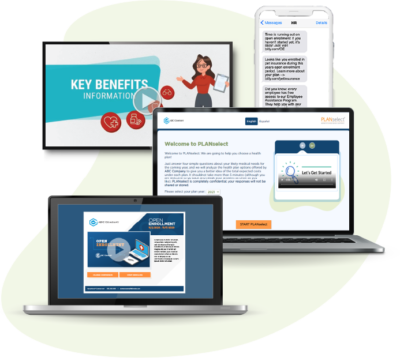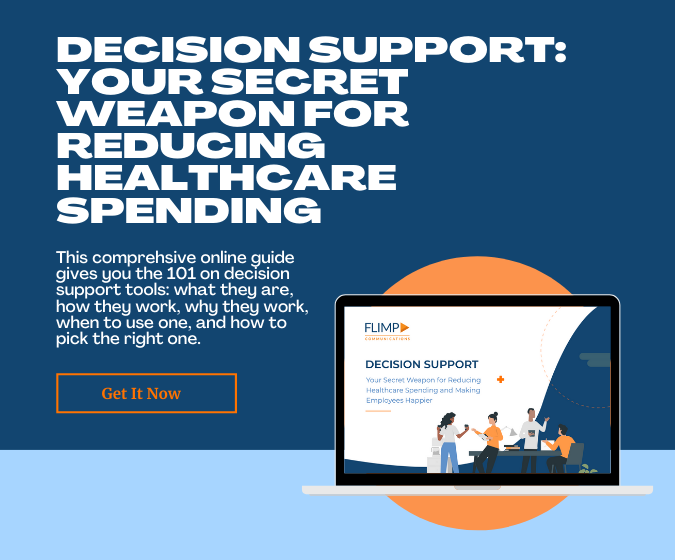It’s open enrollment season, and once again, you’re frustrated with the employees.
Despite all the options your HR team works hard to offer them, employees insist on making less-than-optimal choices, refuse to research new benefits, don’t seem to read any of the material you share with them, and continually pester you with the same questions over and over again.
It’s aggravating, we know. But put yourself in an employee’s shoes. On top of everything else you need to get done for work, you somehow have to accurately estimate your family’s health needs for the entire coming year, decode confusing insurance jargon, and compare plans with features that rarely align one-to-one.
It’s not surprising that nearly half (49%) of workers don’t understand their benefits. Nor is it shocking that the average employee hates choosing benefits as much as asking for a raise or renewing their driver’s license.
Fortunately for both employees and HR teams, open enrollment is getting easier, more streamlined, and — most importantly — much less maddening thanks to a new class of tools that help employees forecast healthcare usage and costs.
These tools are often referred to as health insurance calculators.
The most powerful health insurance calculators (think of them as the enterprise-class) are decision-support tools, the best of which can help employees predict their needs and spending, compare plans, and make satisfying decisions in minutes.
Related Ebook: Reducing Healthcare Spending with Decision Support. Read it here →
What Is a Health Insurance Calculator?
A health insurance calculator is any web or mobile app designed to help users understand and compare health insurance plans.
Typically, users will be asked to enter information about each plan — such as monthly premiums, deductibles, and out-of-pocket maximums — and their health needs. For example, the calculator might ask users to anticipate whether they will have major surgery or expect to give birth in the coming year.
With this data, the health insurance calculator will provide a cost estimate for the plan. Some health insurance calculators allow users to compare multiple plans side-by-side or compare spending for different plan types, such as HDHPs, PPOs, and HMOs.
Who Offers Health Insurance Calculators?
Health insurance calculators may be provided by health insurance vendors, non-profit organizations, governments, and of course, employers.
For example, HSA provider Lively hosts a health insurance calculator on its website. The Kaiser Family Foundation offers a health insurance calculator for people exploring their state marketplace. Excellus BlueCross BlueShield’s health insurance calculator lets users compare HDHPs to other plan types.
The Pros and Cons of Health Insurance Calculators
The health insurance calculators described above are useful in the same way that a pocket calculator is. They save users from having to work out their costs manually. Also, by encouraging users to estimate their usage, these calculators provide a framework for thinking about and comparing health plans.
The downside to these basic free calculators is that they still ask quite a bit from users. To use most of these calculators, users must know (and understand) the fundamental aspects of each plan (monthly premiums, deductibles, and so on). And they must accurately predict their health needs for the coming year.
Simple calculators like these only do a little explaining; they present the numbers and leave it up to users to determine what they mean.
But, as we mentioned earlier, there is a more advanced form of health insurance calculator that can not only calculate the expenses associated with different plans but recommend the best-fitting plans for each user: decision-support tools.
What Is a Decision-Support Tool?
The differences between basic health insurance calculators and advanced decision-support tools are spelled out in their names. Health insurance calculators crunch the numbers while decision-support tools — as the name implies — help users make decisions.
Think of a decision-support tool as doing what you’ve always wished you could do but never had the time for: sitting down with each employee, walking them through their benefits options, and helping them choose based on their individual situations.
A good decision-support tool will ask an employee a few minimally-intrusive questions. Then, rather than simply calculate, the tool will model the employee’s anticipated healthcare needs for the coming year and use that model to project costs among different plans accurately.
The best decision-support tools do not expect employees to be healthcare experts. The tools do the hard work behind the scenes, applying powerful algorithms to rich databases — sometimes containing hundreds of millions of data points. What the user sees is a straightforward comparison table clearly indicating the best value for their needs.
Should Your HR Team Provide a Decision-Support Tool? Find Out With Your Free Web Guide
If you’re looking for ways to make open enrollment easier for your HR team and employees this year, health insurance calculators are a step in the right direction. Decision-support tools are a giant leap forward.
When HR teams offer decision-support tools, employee engagement increases, HDHP enrollment climbs, and healthcare costs shrink. Learn how this is possible in our complete guide to decision support for HR professionals.








